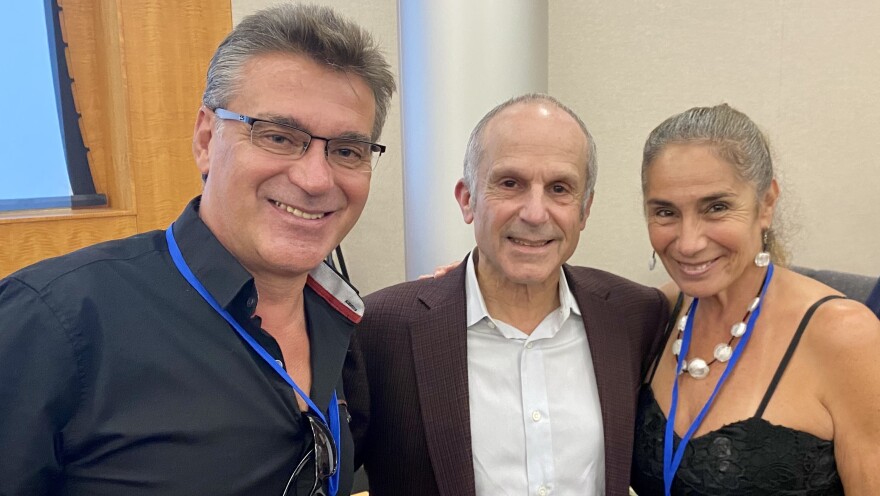After nearly seven years of dormancy, the Ringling Bros. and Barnum & Bailey Circus returns to life on the road next month.
Irvin Feld purchased the circus from the Ringling family in 1967. That was the spark that formed Feld Entertainment, whose holdings also include Disney on Ice, Monster Jam and the Jurassic World Live Tour. Feld’s son Kenneth and Kenneth’s three daughters run the family business now, which maintains a staunch commitment to family-oriented entertainment.
Feld spent a day in Bloomington-Normal to address the Circus Historical Society, which brought its annual conference to the Twin Cities for the first time in more than a decade.
“When we closed, we knew we were coming back. There was never a doubt about that,” Feld said in an exclusive interview with WGLT.
“Ringling has been the foundation of Feld Entertainment,” he said. “Everything — the ethos, the philosophy — is Ringling. What that instilled in us is nothing is impossible.”
Feld Entertainment initially intended to bring the show back in 2021. It would have been the 150th anniversary of the “P.T. Barnum’s Great Traveling Museum, Menagerie, Caravan and Hippodrome,” which would later merge with James Bailey’s circus, then with a circus owned by five brothers named Ringling.
The COVID pandemic made that symbolic date impossible to achieve, but Feld maintains that closure was necessary to overhaul an antiquated model. Ringling-Barnum relied on the railroad to travel, but transporting live cargo was increasingly difficult.
“We couldn’t operate,” he said. “Every city, every municipality had different rules and regulations. You can’t operate like that. We need to give the same great performance, every city, every day of the week. We couldn’t do that where you couldn’t have animals in one jurisdiction. It made no sense.”

A new model for an old business
The big top tent was gone by the 1970s as Ringling adapted their shows for arenas, but rail travel in general had become cumbersome. The circus travelled on freight lines and were subjected to long delays that made it nearly impossible to move from city to city on time.
“It was a confluence of all these situations at once,” Feld said. “We made a decision as a family. It was a very difficult, tough, emotional decision because, literally, it is what the company is founded on."
The new show employs 75 performers from all over the world. There are no animals and no rings — five performance platforms and interactive video create a 360-degree experience in which no seat is a bad seat. The show features familiar circus acts like the high wire and aerialists, plus four clowns, though you’re not likely to find traditional makeup and red noses.
“You can’t have a business that’s 150-some years old without evolving,” Feld said. “That’s life. We exist because of the audience. We have to be forward thinking so we can figure out what the audience wants today, but more importantly, what they want tomorrow.”
Ringling Bros. and Barnum & Bailey’s 50-city national tour kicks off Sept. 29 in Bossier City, Louisiana. The closet possible place to catch it is Nov. 3-5 at Allstate Arena outside Chicago. Feld says with the right venue and enough audience interest, he "would love to have Ringling in Bloomington" in the future.



